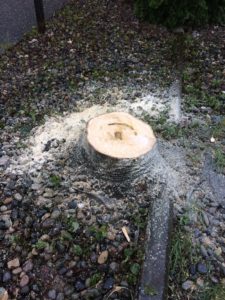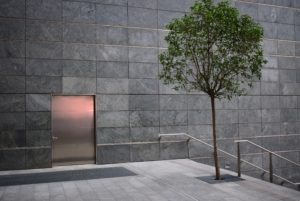Today we got to observe our apprentice in action for the first time as he dropped a maple tree in a residential neighbourhood. And he dropped it well.
The Norway maple (Acer platanoides Crimson king ) was allegedly too close to a water main and the city approved the removal. So in we went and took it out in one hour.
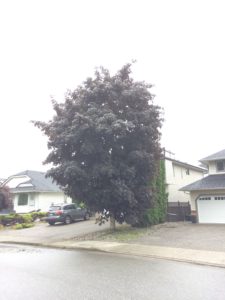
Stages
First, we chain sawed the lower branches for better access and visibility. I got some much needed chainsaw time on the back of the truck demolishing branches so the wood would fit into one load. And it did!
Second, we installed a line in the crown that would guide the drop in the right direction. That is, onto the road not on top of houses.
Third, came the main drop expertly delivered by our apprentice. Once we cleared away all woody debris, the last fourth stage involved taking down the stump.
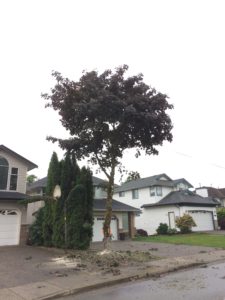
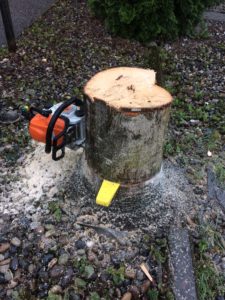

But the blog post doesn’t end here. Since we are on the topic of removing one tree…..
The power of one tree
The Globe and Mail (May 27, 2017, page SU1) reports on the power of one tree. Cutting down just one city tree has a measurable effect on local airflow, air quality and temperature regulation!
UBC researchers looked at trees’ impact on airflow and energy consumption with new computer models. They wanted to answer two key questions?
- What happens in winter when leaves fall off deciduous trees?
- What would happen if we removed the trees entirely?
Interesting findings
Each individual tree in an urban environment plays a role in improving quality of life and reducing energy costs.
It turns out that removing a tree can increase wind speed by a factor of two. This also affects the pressure loading on buildings- the increased airflow that infiltrates through small gaps and openings. Estimates show that pressure loading is responsible for up to 30% of a building’s energy consumption.
In winter, deciduous trees don’t have any leaves but their branches still mitigate airflow. So don’t rush to plant only evergreen trees in urban areas. Deciduous trees also reduce pressure loading on buildings throughout the year.
So next time before you remove even a single tree, think about the effects.

